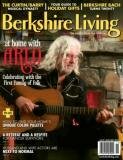
MUSIC FOR LIVING: Shelby Lynne, Mark Knopfler, Cowboy Junkies, Rosanne Cash, Dave Rawlings Machine, Cornershop
 Shelby Lynne
Shelby Lynne
Tears, Lies, and Alibis
Everso
With ten albums to her credit on nearly that many record labels, as well as a Grammy Award for Best New Artist, it is somewhat mystifying why at this point in her career country-soul singer-songwriter Shelby Lynne has to self-release a recording. Whatever. This mostly spare, acoustic effort showcases Lynne’s remarkable skills as a songwriter and a vocalist—she’s the missing link between Patsy Cline and Dionne Warwick. Lynne touches all her various bases, from country balladry (“Old #7”) to jazzy folk (“Alibi”) to girl-group soul (“Why Didn’t You Call Me”) to dark alt-country (“Family Tree,” a scary journey into her family’s violent, tormented lineage). It may not outrank Lynne’s greatest achievements (I Am Shelby Lynne and Just a Little Lovin’), but it’s her most intimate, exposed work.
 Mark Knopfler
Mark Knopfler
Get Lucky
Reprise
While it may not have any Dire Straits-like power-rockers, Mark Knopfler’s Get Lucky, his sixth solo album of original songs, packs in plenty of cinematic epics (think “Brothers in Arms”) with his signature electric guitar licks that heighten the tension by threatening to explode at any moment, as in “Cleaning My Gun” and “Border Reiver.” Most of these songs explore Knopfler’s youth growing up in Scotland and a not-so-distant pastoral British past, and thus his songs are appropriately colored by Celtic touches of flute, fiddle, accordion, and acoustic guitars flecked with evocative keyboards. Knopfler remains a distinctive vocalist and dynamic storyteller in song, with an unmatched economy of phrase that plants him solidly in the folk tradition.
 Cowboy Junkies
Cowboy Junkies
Renmin Park (The Nomad Series Vol. 1)
Latent
On paper, it reads like a recipe for disaster—a concept album about a love affair in China by Canadian alt-country rockers Cowboy Junkies with samples of Chinese music and found sounds interwoven with the Junkies’ moody, hypnotic dream-rock. Which makes this insinuating and compelling recording all the more gratifying. Based on a three-month trip that bandleader and songwriter Michael Timmins took to China with his family, the result is the Junkies’ most dynamic, urgent recording in years. Maybe the contrast of civilizations inspired him; maybe it was the sense of alienation he encodes into “Stranger Here,” one of the group’s all-time best rockers. Sister and lead vocalist Margo Timmins has never sounded more commanding and confident than she does on this first of a projected four new concept albums to be released by the band in the next eighteen months.
 Rosanne Cash
Rosanne Cash
The List
Manhattan
The story goes that when Rosanne Cash told daddy (that’s Johnny Cash to you) that she was going to be a songwriter like him, he gave her a list of one hundred songs to study. Cash renders a dozen of them here as a tribute to her father and to the folk-country tradition from which they both stem. The arrangements of songs by the likes of Merle Haggard, Hank Cochran, Harlan Howard, Jimmie Rodgers, Hank Williams, Bob Dylan, and A.P. Carter are rootsier than most of Cash’s recordings of her own material, and her skill as an interpretive vocalist takes front and center. Bruce Springsteen, Elvis Costello, Jeff Tweedy, and Rufus Wainwright lend such subtle harmonies that you may not even recognize them.
 Dave Rawlings Machine
Dave Rawlings Machine
A Friend of a Friend
Acony
Best known as the other half to his better-known partner, Gillian Welch, Dave Rawlings finally strikes out on his own—albeit in the guise of a band, which includes Welch first and foremost on harmonies, along with Heartbreakers keyboardist Benmont Tench, multi-instrumentalist Nate Walcott of Bright Eyes, and a half-dozen other players, most drawn from old-time string band Old Crow Medicine Show. The playing and arranging on this all-acoustic, laid-back effort is back-porch rootsy—a version of Conor Oberst’s “Method Acting” morphs into Neil Young’s “Cortez the Killer,” typically thought of as a take-no-prisoners scorch-rocker, but rendered here as a mournful epitaph. Rawlings’s own tenor takes some getting used to, but the easygoing sound recalls the Band at its most relaxed, and there’s no debating the ensemble’s musicianship nor Rawlings’s skills as a songwriter.
 Cornershop
Cornershop
Judy Sucks a Lemon for Breakfast
Ample Play
Seven years since the Anglo-Indian group’s last recording, Cornershop returns with a gleeful, melodic batch of Beatles-inspired pop-soul. Gospel meets sitar on these dozen tunes, including a cover of Manfred Mann’s version of Bob Dylan’s “The Mighty Quinn.” With his deadpan vocals and dizzying eclecticism, bandleader Tjinder Singh, contemporary London’s answer to Beck, shows that Vampire Weekend are mere pikers. Cornershop performs neo-psychedelia, solid soul, and Jamaican dub with organic flair. They’re like the grandchildren of the Clash and Big Audio Dynamite, and Singh boasts the faux naïveté of David Byrne on songs about obscure British pop stars, the music industry, and notorious race riots. All this on an album of perfect summertime party music.
[JULY 2010]

 Delicious
Delicious Digg
Digg StumbleUpon
StumbleUpon Propeller
Propeller Reddit
Reddit Magnoliacom
Magnoliacom Newsvine
Newsvine Technorati
Technorati
